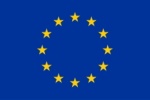The PANACEA consortium brings together seven national infrastructures across Europe (CNRS in France, Aarhus University in Denmark, CERM-CIRMMP in Italy, Radboud University in the Netherlands, University of Aveiro in Portugal, Göteborg University in Sweden and University of Warwick in the UK), incorporates one infrastructure in the United States (at Florida State University) and opens them to all European researchers, from both academia and industry. Bruker Biospin and Mestrelab, as well as EPFL and the Weizmann Institute of Science are also involved in the consortium. Funded by the European Commission Horizon 2020 framework program, the project started on September the 1st 2021 for a period of four years.
In parallel to access, the partners will develop joint research and networking activities with the objective to improve the quality and quantity of the services provided by the infrastructures, and facilitate the use of modern solid-state NMR by non-expert users, widening the opportunities for novel application areas in chemistry.
We encourage all European researchers from academia and industry to use the solid-state NMR facilities https://panacea-nmr.eu/access/submit-a-project?view=form, for research projects relevant in any sector of chemistry: pharmaceutics, fuels, batteries, phosphors, cosmetics, sustainable development, polymers, food and feed, crop selection, water treatment, biomaterials, biomaterials, inorganic-organic photoconduction devices, rocks and minerals, cementitious materials, etc.
For more info, please visit the PANACEA website: https://panacea-nmr.eu/
Advances during 2021
- Raman communication interface.
- Definition of the data model to extract from the Raman.
- Development of a software system able to read and visualize, process and analyze Raman spectral Information in the cloud using a distributed software architecture.
- Optical characterization of synthetic nanostructures. Fabrication and characterization of SERS-encoded nanoparticles.

